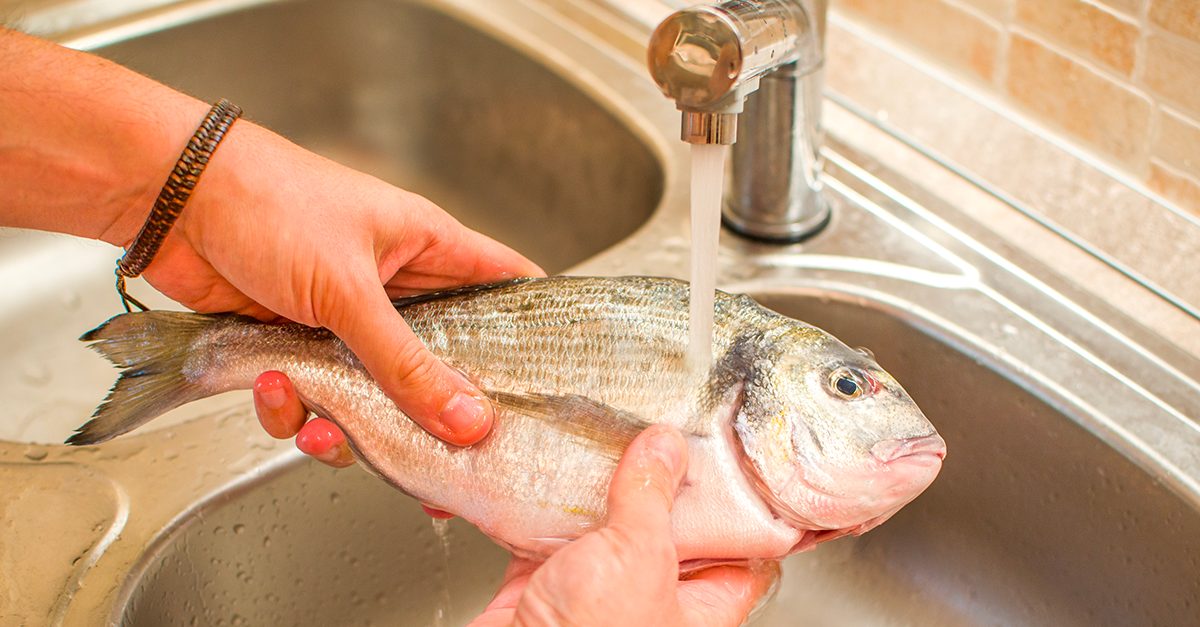How to Get Your Fish to Smell Less “Fishy” (Without Washing It!)
Fish is delicious, but its strong smell? Not so much—especially in small spaces. Instead of washing it with water, natural solutions like citrus, milk, salt, and ginger can help neutralize odors before cooking.
;Resize,width=742;)
Fish is one of the most beloved proteins in the world—delicate, flavorful, and packed with nutrients. But let’s be honest: its smell is not part of the charm. That unmistakable "fishy" odor has a scientific reason behind it. Unlike land animals, fish contain trimethylamine oxide (TMAO), a compound that helps regulate their water balance. When fish dies, TMAO breaks down into trimethylamine (TMA), the culprit behind that strong, briny smell.
Fresh fish has little to no odor, but as it sits, the TMA intensifies—especially if you live in a small apartment where smells linger like an uninvited guest who won’t take the hint. If you don’t want to wash the fish with water (which can sometimes spread the smell further rather than reduce it), there are natural ways to neutralize that fishy funk while waiting to cook.
Use Citrus
One of the simplest and most effective ways to combat fish odor is with citrus. Lemon, lime, and even orange juice contain acids that help neutralize TMA, breaking down the compounds responsible for the fishy smell. A light squeeze over your fillet before cooking, or even letting the fish sit in a shallow dish with fresh citrus slices, can significantly mellow the odor.
Citrus doesn’t just mask the smell—it actively reacts with the TMA, cutting the sharpness while enhancing the fish’s natural flavors. Plus, who doesn’t love a little lemon-kissed seafood? It’s nature’s built-in deodorizer and flavor booster, all in one.

Use Milk
This might sound strange, but soaking fish in milk for about 20 minutes before cooking works wonders. The casein proteins in milk bind with the TMA and strip away the fishy aroma, leaving the fillet smelling much fresher. Once the soak is done, just pat the fish dry—no need to rinse—and you’ll notice a huge difference.
This trick works particularly well for lean white fish like cod, tilapia, or haddock, which tend to develop a stronger smell as they age. And no, your fish won’t taste like dairy—it will just smell noticeably cleaner and milder.
Good Old-Fashioned Salt
Salt isn’t just for seasoning—it can also help draw out excess moisture and the compounds causing the odor. Lightly sprinkling coarse salt over fish fillets and letting them sit for 10–15 minutes before cooking can absorb unwanted odors while also improving texture.
For an even deeper effect, some cooks prefer rubbing the fish with a mix of salt and a little vinegar or lemon juice to really neutralize the TMA. The key is to wipe off the excess salt before cooking so it doesn’t overpower the natural flavor of the fish.

Ginger and Herbs
Ginger isn’t just a hero in stir-fries—it’s also fantastic at cutting down fishy odors. Thin slices of fresh ginger placed on top of the fish—or even a quick soak in ginger-infused water—can significantly mellow out the smell. It works similarly to citrus, helping to neutralize TMA while infusing a subtle warmth into the fish.
Fresh herbs, particularly parsley, cilantro, and dill, also help mask and absorb fishy aromas. If you store fish in the fridge before cooking, placing a bed of herbs underneath can trap some of the odor while adding a fragrant touch. It’s a small step that can make a big difference.
How to Get Rid of the Fishy Smell After Cooking
Even if you’ve tamed the fish before cooking, there’s no escaping the after-effects—especially if you’ve pan-seared or fried it. That lingering smell can settle into fabric, walls, and air vents, sticking around long after dinner is over.
The fastest way to combat this? Simmering a pot of water with citrus peels, cinnamon sticks, or vinegar can counteract the odor and absorb the lingering fish smell in the air. Leaving a small dish of baking soda out overnight also works wonders, as it acts as a natural odor neutralizer. And, of course, if the weather allows—open those windows. A little fresh air does more than any store-bought air freshener ever could.
;Resize,width=767;)
;Resize,width=712;)

;Resize,width=712;)
